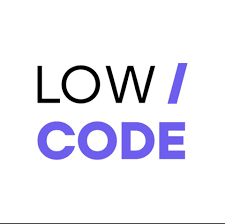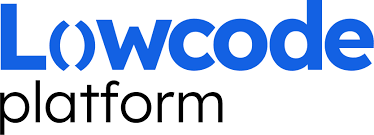Understanding Semantic AI
Artificial Intelligence has evolved far beyond basic machine learning models. Semantic AI represents a major leap forward, integrating meaning, context, and reasoning into AI-driven applications. Unlike traditional AI, which relies on structured datasets, semantic AI mimics human understanding by grasping relationships between concepts, identifying intent, and making informed decisions.
How Semantic AI Works
Core Components
Semantic AI combines multiple technologies to enhance machine intelligence:
- Natural Language Processing (NLP): Understands human language contextually.
- Knowledge Graphs: Stores relationships between entities for better reasoning.
- Ontology Management: Helps AI define and interpret different domains.
- Machine Learning (ML): Learns patterns from vast datasets.
- Context Awareness: Provides relevant information based on real-world scenarios.
Real-World Applications
Companies across industries are integrating semantic AI to improve operations and user experience. Here’s how it’s making an impact:
- Search Engines: Google’s RankBrain enhances search relevance.
- Healthcare: AI diagnoses diseases by analyzing patient data.
- E-Commerce: Personalized product recommendations based on user intent.
- Customer Support: AI chatbots understand complex queries better.
Applications of Semantic AI in Content Management
Semantic AI is revolutionizing the way organizations manage digital content by adding contextual intelligence to traditional content management systems (CMS). By understanding the meaning and relationships between words, entities, and topics, Semantic AI enhances the capabilities of CMS platforms across various use cases:
1. Automated Content Classification and Tagging
Traditional CMS platforms often rely on manual tagging, which can be inconsistent and time-consuming. Semantic AI automates this process by analyzing the meaning of content and assigning accurate metadata based on concepts, entities, and relationships. This leads to more consistent tagging, easier content retrieval, and better organization.
2. Improved Search and Information Retrieval
With semantic search, users are no longer limited to keyword-based queries. Semantic AI interprets user intent and contextual meaning, enabling the system to deliver more relevant search results. For instance, it can distinguish between homonyms or understand queries that use different wording but share the same meaning.
3. Personalized Content Delivery
Semantic AI supports user profiling and content recommendation by understanding user preferences, behavior, and contextual signals. This enables CMS platforms to deliver tailored content experiences to different audiences, improving engagement, retention, and conversion rates.
4. Content Enrichment and Linking
Semantic AI can enhance existing content by automatically linking related articles, inserting contextual references, or suggesting multimedia additions. It builds a knowledge graph that interconnects documents, making it easier to explore related topics and discover new content organically.
5. Multilingual Content Management
For global organizations, managing content in multiple languages can be challenging. Semantic AI bridges linguistic gaps by mapping concepts across languages, allowing for accurate translation, localization, and consistency in meaning. This ensures that content resonates with diverse audiences while maintaining semantic integrity.
6. Content Governance and Compliance
Semantic AI aids in monitoring compliance with regulatory standards and brand guidelines by scanning content for sensitive information, policy violations, or off-brand messaging. It ensures governance across distributed content teams without the need for manual oversight.
People Are Always Asking
How is Semantic AI Different from Traditional AI?
Unlike traditional AI, which relies on predefined rules and statistical models, semantic AI understands context and relationships between concepts.
Can Semantic AI Replace Human Intelligence?
No. While semantic AI enhances decision-making, it lacks human intuition, creativity, and emotional intelligence.
Is Semantic AI Expensive to Implement?
Costs vary, but cloud-based AI services make semantic AI adoption more affordable for businesses of all sizes.
Benefits of Semantic AI
- Enhanced Search Accuracy: Delivers precise results by understanding user intent.
- Improved User Experience: Personalizes interactions and recommendations.
- Automated Decision-Making: Reduces manual effort and enhances productivity.
- Data-Driven Insights: Extracts meaningful patterns from vast datasets.
- Cross-Industry Applications: Useful in finance, healthcare, retail, and more.
Top Semantic AI Tools and Services
Google’s Knowledge Graph
Google uses semantic search to connect related concepts and improve search results.
Potential Drawbacks:
- Limited control for businesses over search result appearances.
- Requires structured data markup for optimization.
IBM Watson
IBM Watson leverages AI and NLP for deep insights in business and healthcare.
Potential Drawbacks:
- High cost for small businesses.
- Requires expertise to customize models.
Microsoft Azure AI
Azure AI provides semantic search capabilities and enterprise-grade AI solutions.
Potential Drawbacks:
- Complex integration process.
- Pay-as-you-go pricing may lead to unexpected costs.
Singleclic’s AI Solutions
Tamer Badr, the owner of Singleclic, believes, “Semantic AI is not just a trend; it’s the future of business intelligence. Companies that adopt it today will gain a competitive edge tomorrow.”
Potential Drawbacks:
- May require tailored implementation for specific industries.
- Custom solutions can be resource-intensive.
FAQs
What industries benefit most from Semantic AI?
Industries such as healthcare, finance, retail, and cybersecurity benefit significantly from semantic AI-driven insights.
How does Semantic AI improve customer interactions?
By understanding context and user intent, semantic AI enhances chatbots, search results, and recommendation systems.
Can small businesses afford Semantic AI solutions?
Yes. Cloud-based AI tools provide affordable options for small and medium enterprises (SMEs).
Reviews
AI Experts’ Opinions
- Dr. John Smith, AI Researcher: “Semantic AI is revolutionizing NLP, making search and automation smarter.”
- Lisa Chen, CTO at TechSolutions: “Our chatbot’s accuracy improved by 60% after integrating semantic AI.”
User Testimonials
- David R., Business Owner: “AI-powered search reduced our customer service workload by 40%.”
- Sarah L., Data Scientist: “The ability to interpret context is a game-changer for analytics.”
Final Thoughts
Semantic AI is reshaping the AI landscape by making machines smarter, more intuitive, and capable of understanding human intent. While challenges like implementation costs and complexity exist, the benefits far outweigh the drawbacks. Businesses that leverage semantic AI today will gain a competitive advantage in the years to come.









